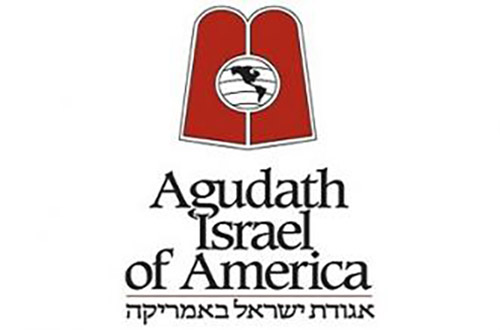|
Getting your Trinity Audio player ready...
|
gudath Israel’s Moetzes Gedolei HaTorah Issues Firm Prohibition Against Participating in World Zionist Organization Elections
Edited by: TJVNews.com
In a significant and forcefully worded declaration that has reverberated through Orthodox Jewish communities across the United States and beyond, the Moetzes Gedolei HaTorah of America, the supreme rabbinic council of Agudath Israel of America, has formally prohibited participation in the upcoming World Zionist Organization (WZO) elections.
As was reported on Tuesday by VIN News in a detailed article authored by Yair Hoffman, the declaration—titled “Kol Korei Regarding the Elections for the WZO”—was issued following a special gathering of the Moetzes on Thursday, the 20th of Adar, 5785, and represents a sharp reaffirmation of Agudath Israel’s longstanding ideological and theological opposition to secular Zionist frameworks.
The statement, issued in the name of the Moetzes and representing its collective rabbinic authority, makes no room for ambiguity. It declares unequivocally that it is “forbidden to vote for any party in the election for the WZO.” This is not simply a policy preference or advisory opinion; it is presented as a halachic (Jewish legal) ruling, underscoring the gravity with which the Moetzes views the issue.
The declaration roots its position in the historic foundations of Agudath Israel, which was established over a century ago in direct opposition to the Zionist movement. According to the Moetzes, Zionism, as articulated by its founders and perpetuated by the WZO, sought to redefine Jewish identity in secular, nationalistic terms, thereby severing it from its Torah-based essence, as was noted in the VIN News report. The statement cites the intent of early Zionists to transform the Jewish people from “a kingdom of servants of Hashem and a holy people” into simply “a nation like all other nations.”
This declaration is deeply rooted in a historical lineage of rabbinic opposition to Zionism, referencing such towering figures as the Chofetz Chaim zt”l, the Gerrer Rebbe zt”l, and Rav Chaim of Brisk zt”l, all of whom took strong stands against participation in the Zionist movement in their time, according to the information provided in the VIN News report. The Moetzes invoked their views to reinforce the spiritual and ideological continuity of its current position.
Of particular interest, as noted in the VIN News report, is how this new declaration marks a departure from the more nuanced stance taken at the Agudah Convention five years ago. At that time, the organization’s “unofficial” platform cautiously encouraged voting for the Orthodox slate in WZO elections, arguing that such participation could help protect religious interests in Israel—such as safeguarding holy sites from the influence of Reform groups and redirecting WZO funding to support yeshivos and Torah institutions.
However, the current ruling rejects that argument in full, citing multiple religious concerns and what the declaration explicitly refers to as “issurim” (prohibitions) involved in participation, regardless of intentions. The Moetzes appears to reject the idea that one can simply redefine “Zionism” through a Torah lens to justify participation. Instead, the statement insists that even well-meaning efforts to reinterpret Zionist terminology or agendas fall short of resolving the underlying theological contradictions.
The ruling makes clear that even participation under the banner of Torah observance—such as voting for a Chareidi-affiliated slate—is not permissible. The theological orientation of the WZO itself is presented as incompatible with Torah values, regardless of how a voter might intend to reinterpret that framework. As described in the VIN News report, the Moetzes appears to be pushing back against a trend among some Orthodox activists who have argued that the WZO’s secular definitions of “national service” or “Zionism” can be reimagined through a halachic prism. The new Kol Korei explicitly rejects this line of reasoning.
While the language of the declaration is firm, it concludes on a spiritual and unifying note. The Moetzes closes with a heartfelt prayer for Jewish unity and return to traditional Torah values, expressing the hope that “the entire Jewish people return to their Father in Heaven and accept upon themselves the yoke of Torah” as was reported by VIN News. This tone reflects Agudath Israel’s broader mission not only to maintain ideological boundaries, but to uplift the Jewish people through spiritual clarity and adherence to halachah.
As the VIN News report noted, Agudath Israel of America, founded in 1922 as the American branch of the global Agudath Israel movement, has long served as the representative voice of the Torah-observant and Chareidi Jewish community in the United States. Through its advocacy, educational initiatives, and rabbinic leadership, the organization has consistently sought to defend and promote Torah values within the American Jewish landscape and in relation to the State of Israel.
This declaration from its Moetzes Gedolei HaTorah is a definitive reaffirmation of Agudah’s ideological foundation—one that has always prioritized spiritual integrity over political expediency.
The VIN News report emphasized that the Kol Korei is a halachic decision issued by this specific rabbinic body, and as with all matters of Jewish law, individuals are advised to consult with their own rabbis or halachic authorities for personal guidance. This reflects the complexity of contemporary Jewish life, where differing opinions and community norms may require tailored rabbinic input.
The Moetzes Gedolei HaTorah’s declaration against participation in the World Zionist Organization elections marks a pivotal moment in the dialogue between Torah Jewry and the secular Zionist establishment. As VIN News has reported, it highlights not only theological divergence but a call to spiritual accountability and communal clarity.
For the Moetzes, the message is unambiguous: Torah Judaism cannot be reconciled with secular Zionist structures, and participation in their systems—even with ostensibly noble goals—poses serious religious challenges. As the WZO elections approach, this declaration is likely to shape discourse and decisions within Orthodox communities across America and beyond.




